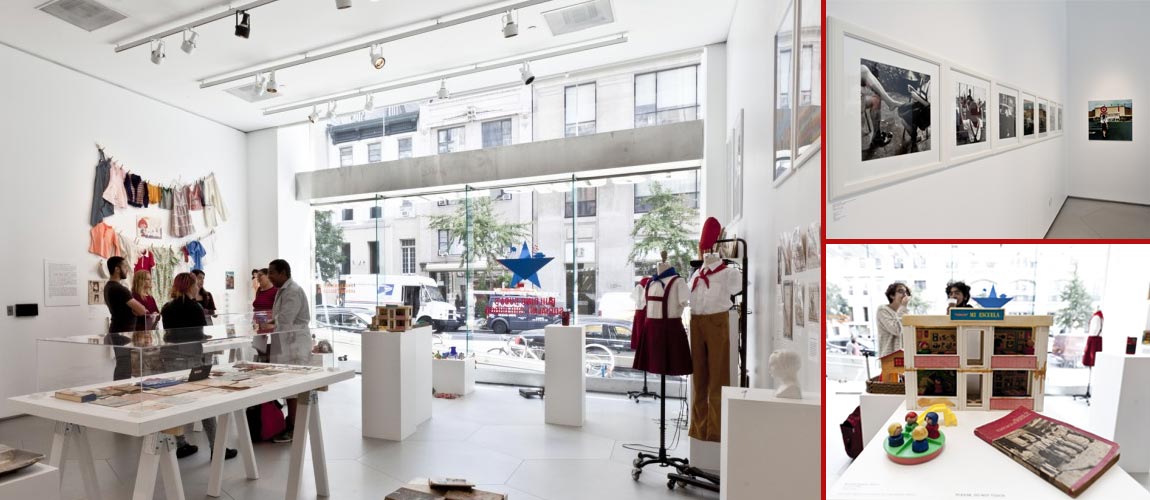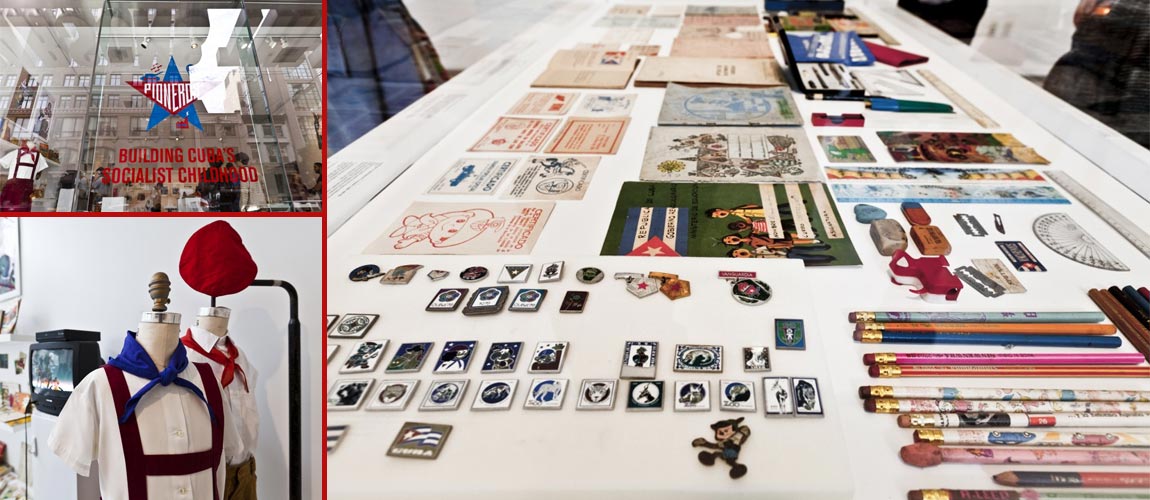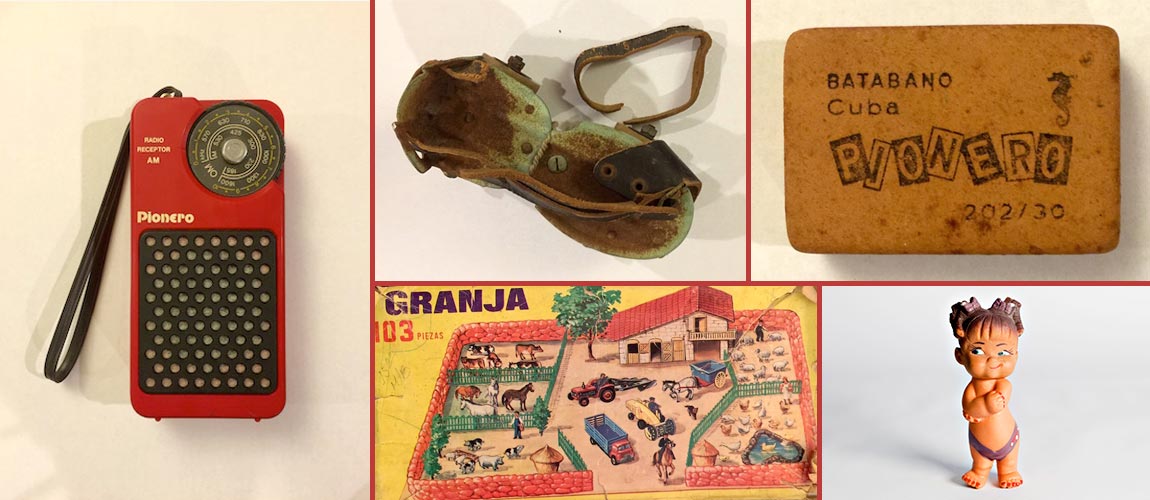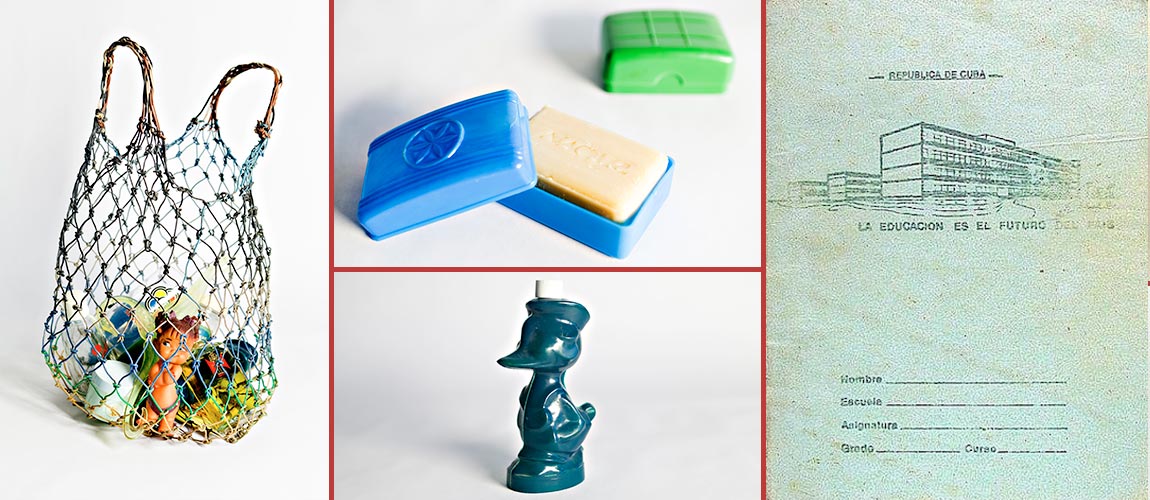Pioneros: Building Cuba’s Socialist Childhood
On view from September 17 to October 1, 2015, at the Sheila C. Johnson Design Center, Arnold and Sheila Aronson Galleries, Parsons School of Design/The New School.
Program funded by the New School’s Sheila C. Johnson Design Center, New Challenge award, Foreign Languages Department, and Sociology Department.
About the Project
Experience an unprecedented exhibition showcasing the material culture of Cuban childhood spanning from the 1960s to the 1980s. This period witnessed the establishment of a Soviet-style state socialist regime in Cuba, fundamentally transforming everyday life in the country. Pioneros: Building Cuba’s Socialist Childhood delves into the intricate connections between the political, the domestic, the personal, and the material realms, offering a captivating portrayal of how global and national influences shaped the daily lives of Cuban families.
Co-curated by sociologist Maria A. Cabrera Arus and art historian Meyken Barreto, the exhibition features an impressive collection of over three hundred historical items. Delve into a vivid display of toys, furniture, books, clothing, appliances, children’s ephemera, photographs, posters, television shows, and recorded music. The musical curation is led by art historian Emilio Garcia Montiel.
All artifacts and items showcased in the exhibition belong to the Cuba Material collection, with the exception of the posters, which are part of designer Pepe Menéndez. Complementing the exhibition, Cuban-American artist Geandy Pavon, a former “pionero” (young pioneer), has produced a series of thought-provoking photographs that shed light on the contemporary significance of the themes explored.
Complementary Events
Panel: “Grown-Up Children from State Socialist Regimes”
Coordinated by New School for Social Research doctoral candidate María A. Cabrera Arús and University of Connecticut professor Jacqueline Loss, this panel brings together the personal testimonies of writer Anya von Bremzen (born in the USSR), Cuban-American NYU professor Ana M. Dopico, New School Sociology professors Elzbieta Matynia (born in Poland) and Virag Molnar (born in Hungary), Cuban writer José Manuel Prieto, and Cuban historian Abel Sierra Madero. The panelists will reflect on their experiences of growing up in state socialist regimes, discussing the similarities and differences between childhood in Cuba, Cuban exile in Miami, and the Eastern Bloc.
Film Screening: The Sugar Curtain (2006) and Goodbye, Lolek (2005)
Coordinated by Walfrido Dorta and María A. Cabrera Arús. Join us for a screening of the feature documentary The Sugar Curtain, directed by Camila Guzmán Urzúa (courtesy of Icarus Films), and the short documentary Good bye, Lolek (2005), directed by Asori Soto. The event will include a Q&A session with movie director Asori Soto and Emmy awardee Jerry W. Carlson, professor at CUNY, moderated by Walfrido Dorta.




